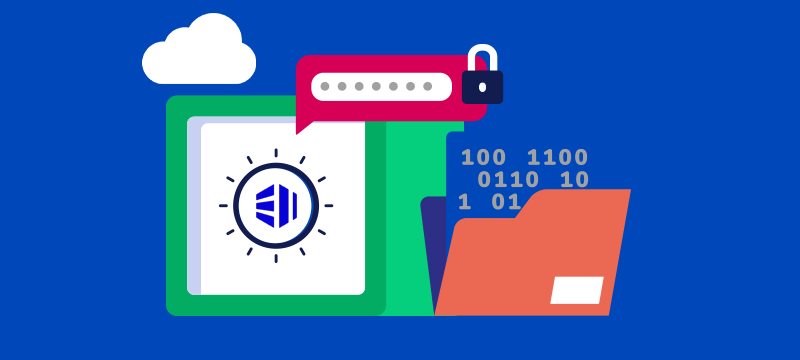When it comes to storing and managing data, the ease of accessibility, scalability and flexibility offered by the cloud has made it an invaluable tool for businesses. However, along with these benefits, there are some security concerns. Data breaches, unauthorised access and cyberattacks can lead to serious consequences for a company’s reputation and bottom line. In this post, we look at why cloud data encryption is an essential part of your security.
The value of data
In today’s digital economy, data stored in the cloud has significant value. From intellectual property to financial records and sensitive customer data, the range of information businesses entrust to cloud providers is vast. This data, however, is not just of value to companies, it is also worth a great deal to cybercriminals. In the wrong hands, this data can be sold on the dark web for financial gain, can give rival businesses a competitive advantage or can even be used for political leverage. And as the volume of cloud-stored data grows, so does the attraction for hackers.
The role of encryption
Encryption acts as a lock that keeps unwanted intruders out of your data. In its most basic form, encryption transforms readable data, known as plaintext, into an unreadable form, called ciphertext. Only those with the appropriate encryption key can decrypt this ciphertext back into its original form. This means that even if a cybercriminal manages to access your encrypted data, without the key, the information remains indecipherable and therefore, useless to them.
Why encryption is necessary in the cloud
Today, the encryption of cloud-based data is non-negotiable for a number of reasons. Firstly, organisations within sectors such as finance, local government and healthcare have to comply with regulations regarding data protection. Non-compliance can lead to substantial fines, severe legal repercussions and reputational damage. Encryption helps businesses meet these regulatory benchmarks by ensuring that client and customer data remains under wraps.
Secondly, while no system can ever be entirely immune to data breaches, encryption does offer a substantial layer of protection. In situations where hackers succeed in infiltrating a system, the encrypted data ensures they are met with a wall of indecipherability. The information, though accessed, remains nonsensical without the proper decryption key, so they can do nothing of use with it.
Finally, the trust and reputation a business commands in the market can be significantly influenced by its data protection measures. Today, clients and customers have heightened concerns about the safety of their data. When businesses deploy robust encryption protocols, they send a clear message about their commitment to data security. This not only fosters trust but also bolsters their reputation among stakeholders.
Interested in Cloud Security? Read A Comprehensive Plan for Cloud Database Security
How to encrypt your cloud-based data
Thankfully, encrypting data in the cloud is neither as complex nor as costly as it once was. Here’s how it can be achieved:
At-rest encryption
This form of encryption protects data that is stored in a static state, such as databases, archives and configurations. Most reputable cloud service providers offer at-rest encryption as a standard feature.
In-transit encryption
When data is being transferred between locations, for example, between data centres or from a user to the cloud, it is vulnerable to interception. In-transit encryption, typically achieved using Secure Socket Layer (SSL) or Transport Layer Security (TLS) protocols, ensures data remains private during transmission. This prevents it from being either stolen or tampered with.
Client-side encryption
Here, data is encrypted on the client’s side (e.g., a user’s device) before it’s transferred to the cloud. This means the cloud provider never has access to the unencrypted data or the encryption keys, providing an additional layer of security.
Encryption key management
While encryption is essential, the management of encryption keys is equally critical. Proper key management ensures that only authorised users can access and decrypt the data. It’s often recommended to use dedicated hardware security modules (HSMs) or trusted platform modules (TPMs) to manage and store these keys safely.
Regularly update and audit
Cybersecurity issues are constantly evolving, with new threats emerging daily. To stay ahead, it’s crucial to regularly update encryption protocols and conduct periodic audits to identify potential vulnerabilities.
Conclusion
Cloud data encryption isn’t just advisable, today, it’s a necessity. As reliance on cloud storage grows, ensuring the safety and integrity of the data within it becomes paramount. Encryption offers a robust shield against malicious actors, ensuring that sensitive information remains confidential and secure. Whether you’re a public organisation or a business, safeguarding your valuable information is essential and encryption offers a smart, proactive way to keep cybercriminals at bay.
Looking for cloud storage with a wide range of security features, including encryption? Visit our Cloud Hosting page.



